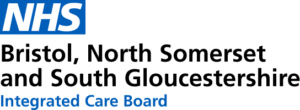ICB leads the way in healthcare research
For the last nine years Bristol, North Somerset and South Gloucestershire (BNSSG) has been the highest ranking local NHS authority in England for Research Capability Funding, the main funding stream from the National Institute for Health and Care Research (NIHR).
This year, in terms of the amount of Research Capability Funding awarded, the BNSSG Integrated Care Board (ICB) is the highest ranking of all the NHS organisations in England, including some of the largest research hospitals in the country.
The ICB currently holds arpund 40 NIHR-funded grants, covering a wide range of topics across commissioning, primary care, social care and public health, as well as supporting dozens of other funded research and development projects.
For example, local GP and University of Bristol academic, Dr Jess Watson, used the anonymised electronic health records of nearly 200,000 patients to determine the usefulness of certain blood tests carried out in GP surgeries. The research showed that many of these tests were not useful or helpful to patients. This resulted in changes that reduced the number of unhelpful tests being requested, which improved quality of care and saw a reduction in unnecessary test activity. This led to a financial saving of more than £360,000 in a nine-month period and has continued to contribute to ongoing cost savings.
Another example is the creation of the south-Asian dementia diagnosis pathway (ADAPT) – an online toolkit for people with a South Asian heritage living with dementia. The creation of this toolkit was led by Prof Rik Cheston from the University of the West of England (UWE) after research showed that South Asian people are more likely to be diagnosed with dementia at a later stage and when their symptoms are much worse than is the case for white British people. They are therefore less likely to be given medication or receive recommended treatments for dementia.
The work has highlighted many difficulties faced by patients and their families or carers, and has pulled together useful resources for policy makers and service providers which can help to overcome some of the challenges faced.
Dr Charlie Kenward, Associate Medical Director at the BNSSG ICB said:
“These are examples of some of the amazing research projects carried out by local researchers and commissioners. Every year we support more than 60 individuals including academics, clinicians, commissioners and local authority staff to develop new research grant funding applications. We are fortunate in Bristol to be able to work with researchers from two excellent universities.”
“We are committed to improving care for our patients through creating a culture of robust, well-evidenced healthcare commissioning and more impactful research. We are constantly evaluating the products and services we commission and we aim to use the most up-to-date and robust research and evidence to inform our commissioning decisions.”
Shane Devlin, Chief Executive Officer of the BNSSG ICB said:
“We are proud of our research achievements and work hard to make sure our research is relevant and aligns with local and national priorities. More than half of the research we support is designed with service commissioners meaning it has a direct impact on improving healthcare for the local community and also nationally.”
For more information about the ICB’s research activities, please see the ICB website where you will also find information about how to participate in research.
